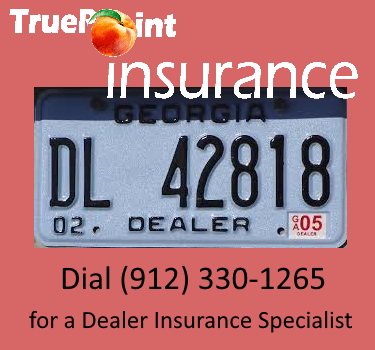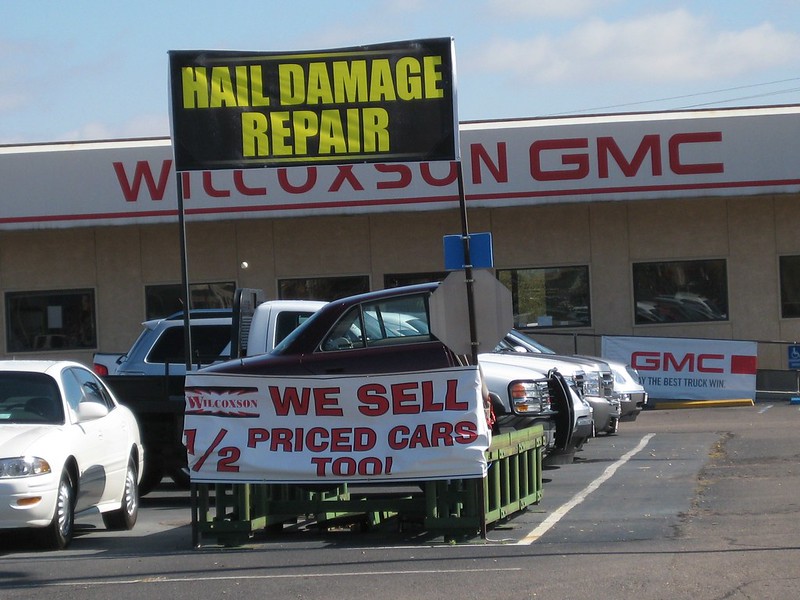
What is a Dealer’s Blanket? It has nothing to do with auto dealer giveaways. The Dealer’s Blanket is a form of business insurance that provides physical damage coverage for Auto Dealers. You may have heard it referred to as Open Lot Insurance or Dealers Open Lot Insurance. Regardless of the name, this policy is essential protection for many car lots.
Consider your own car insurance. In many ways, the Dealer’s Blanket looks similar to your personal auto policy. The primary purpose of the policy is to provide protection against dealer loss. Specifically, losses resulting from comprehensive and collision protection. While there are many similarities, there are also some significant differences.
Personal Auto policies provide liability coverages. Liability coverage is not the purpose of the Dealer’s Blanket. It is a coverage that they have access to, but it is not provided by the Dealer’s Blanket. Liability protection for auto dealers is provided by the Garage Liability Policy.
Insurance companies require Georgia individuals to provide identification to insure their autos. We refer to this identification as a VIN or vehicle identification number. This serves two main purposes. First, it gives insurers a nearly fail-proof input for pricing their exposure as it relates to your specific vehicle.
While the VIN provides accurate information related to the vehicle’s replacement cost. What it fails to do is provide insights into the present condition of your vehicle. To address this shortcoming, you may even go as far as require you to provide a current photo of your car.
Individuals insure against comprehensive and collision risk. For the most, new and used car dealerships insure against the same. What differences exist?

Auto Dealers in Georgia and other states use the Dealer’s Blanket to transfer comp and collision risks. What is the Dealer Blanket and why auto dealers need them?
Individuals are likely to have the same vehicle all year. Most will own vehicles for many years, some several decades. Used and new auto dealers can’t stay in business by holding on to cars for years or decades.
Successful auto dealerships turn their inventory several times each year. The average US Car Dealer’s inventory turnover is more than 13 times. A dealer with an average inventory of 50 cars would have 650 policy endorsements each year. Those policy changes would be required just to keep up with the new inventory vehicles. To avoid overpaying, they would also need 650 approvals to remove sold vehicles. That would present a serious problem! Making over four insurance transactions every business day seems inefficient. Creating issuers for both the dealer and the insurance company. With so many transactions, it’s also possible the process may put the dealership at risk. Failing to record just one transaction could end in a multimillion-dollar loss. Not a claim! Failure to record a newly purchased vehicle is a problem. the sale was never recorded on the books of the insurance company, the auto lot will be on the hook financially. How many Georgia auto dealers do you know that could serve such a substantial loss.
Let’s give the insurance companies some credit. Recording real-time vehicle information was throughout the policy year doesn’t work. With that said, how do Insurance companies keep track of Georgia Auto Dealer risk?
How to Auto dealers address comp and collision risk.?
Comp and collision is priced and transferred via the Dealer’s Blanket. How it’s done varies between insurance companies and between dealers. If you’re a Georgia car lot, you must understand how your risk and premiums are calculated. The insurance company can not be expected to know how your business changes. Often, the difference between good and bad insurance boils down to communications. Having a good a local Georgia insurance agent can go along way. This thought is easy If your one of those people that respect the value of local contacts.
Insurance markets can not totally eliminate risk. The only way to totally eliminate risk is to avoid it. For those in the business of selling vehicles, this is not an appealing option. The Dealer’s Blanket is a great way to transfer risk. But, it is critical that all parties are on the same page. Problems are largely dependant on establishing the necessary communication process. A critial first step is understanding the Dealer’s Blanket. Combined with accurately communicating auto inventories, car deals can significantly reduce financial exposures.
WARNING: Accurate Inventory Critical

There are two primary approaches to calculating dealer open lot premium:
Non-Reporting Forms – This method is most often used by smaller used car dealers. Georgia Car lots with inventories of $100,000 or less will in most cases use the Non-Reporting method. This may not necessarily be by their choice. Often the cost associated with the monthly reporting eliminates dealers with smaller inventories.
At the beginning of each policy period, the dealer must declare a coverage amount. CAUTION REQUIRED! When a loss occurs, and a claim is submitted, the insurance company will most likely review and calculate the dealer’s inventory. If it is higher than the declared amount, THERE COULD BE A PROBLEM. The underreporting will likely trigger the coinsurance clause. As a result, the dealership will bear the financial responsibility for the difference.
Monthly Reporting Form – This method requires the dealer to periodically update the insurance carrier. This forces dealers to take on additional work, but this method is cost-effective. It always reduces concerns associated with paying coinsurance.
The Dealer’s Blanket is important. But there are many additional coverages that Georgia Dealerships should consider. Some of the most common insurance coverages for Auto Dealers include:
- Commercial Property
- Business Personal Property
- Workers Comp
- Business Income
- Garage Liability
- Garagekeepers
- EPLI
- Business Income
- and Cyber Liability.
We mentioned GarageKeepers, which is another coverage that is specific to the Auto Industry. This coverage protects vehicles of customers that have been left in your care. Dealers that also offer repair work will most likely need to add this coverage too.

 Contact
Contact
 Email an Agent
Email an Agent

 Click to Call
Click to Call Get Directions
Get Directions


